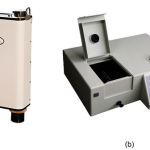Bluetooth technology has become integral to modern electronics. Devices rely on wireless communication to deliver convenience, speed, and connectivity. The Bluetooth Module, in particular, enables seamless integration of devices. Its low power consumption, stable connection, and versatility make it ideal for smart home and wearable applications. As more consumers adopt smart devices, the demand for Bluetooth Module integration grows. Companies leveraging these modules enhance user experience and device functionality, driving innovation across industries.
Enabling Smart Home Device Connectivity
Smart homes depend on efficient device communication. Bluetooth Modules connect lighting, thermostats, and security systems. They provide fast response times and reliable connections. Users can control devices remotely via apps or voice assistants. The module ensures stable communication even in complex home networks. Additionally, low-energy modules reduce power consumption, making smart homes more efficient. Strong connectivity improves convenience, demonstrating the critical role of the Bluetooth Module in smart home systems.
Wearable Device Integration
Wearables, such as fitness trackers and smartwatches, require continuous wireless connectivity. Bluetooth Modules facilitate real-time data transfer to smartphones and cloud platforms. They support heart rate monitoring, activity tracking, and notifications. The module’s compact size allows integration without increasing device bulk. Consistent performance ensures accurate data and enhances user satisfaction. Furthermore, the module’s low power use extends battery life, a key factor in wearable device appeal. Efficient wearable integration relies on advanced Bluetooth Module solutions.
Enhanced Audio and Communication Features
Bluetooth Modules enable high-quality audio streaming in speakers and headphones. Users enjoy clear sound without cumbersome wires. In smart devices, modules support voice assistants and intercom functions. They maintain stable connections even in crowded wireless environments. With improvements in Bluetooth technology, modules now offer lower latency and better audio fidelity. Enhanced communication capabilities make devices more versatile and user-friendly. Manufacturers leverage these benefits to differentiate products using Bluetooth Module integration.
IoT Device Networking
The Internet of Things (IoT) requires seamless device interconnectivity. Bluetooth Modules allow sensors and controllers to communicate efficiently. They support mesh networks for broader coverage and reliable data transfer. Real-time monitoring and control improve system performance. In industrial and consumer IoT applications, modules ensure responsiveness and accuracy. Efficient networking reduces downtime and enhances automation. As IoT expands, Bluetooth Module adoption grows, solidifying its importance in connected device ecosystems.
Energy Efficiency and Low Power Consumption
Power efficiency is crucial for battery-operated devices. Bluetooth Module offers low-energy operation without compromising performance. Devices can operate longer between charges, improving the user experience. Smart home sensors and wearable gadgets particularly benefit from low power use. This efficiency enables more frequent data transmission and better device functionality. Energy-saving features contribute to sustainability goals and reduce operational costs. Effective energy management relies on well-designed Bluetooth Module integration.
Security and Data Protection
Wireless communication requires robust security measures. Bluetooth Modules incorporate encryption and authentication protocols. They protect sensitive information in smart home and wearable applications. Secure connections prevent unauthorised access to personal data. Manufacturers can implement firmware updates to maintain module security. Strong security features enhance consumer trust and device reliability. Integrating advanced security protocols ensures Bluetooth Module applications remain safe and dependable.
Future Trends and AI Integration
Bluetooth Modules are evolving with AI-enabled devices. Predictive algorithms use module connectivity for smarter automation. Smart homes anticipate user preferences, adjusting lighting or temperature. Wearables provide health insights through AI-driven analysis. Modules enable seamless AI communication between devices and platforms. Continuous innovation expands module capabilities beyond basic connectivity. The future of Bluetooth Module integration focuses on intelligent, responsive, and personalised device ecosystems.
Driving Innovation in Consumer Electronics
Bluetooth Modules remain central to smart home and wearable innovation. Their versatility, efficiency, and reliability drive product development. Manufacturers optimise connectivity, user experience, and device performance. The integration of Bluetooth Modules enables seamless communication across multiple devices. Consumers benefit from convenience, functionality, and energy efficiency. As technology advances, modules will continue shaping the evolution of connected electronics. Industry growth depends on embracing Bluetooth modules in smart and wearable applications.










